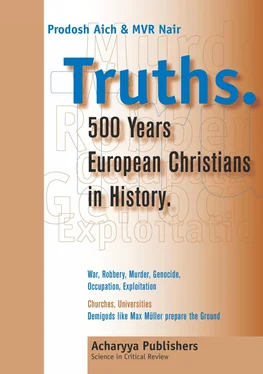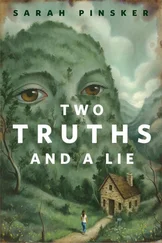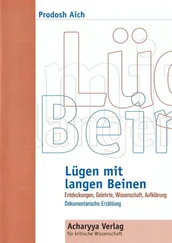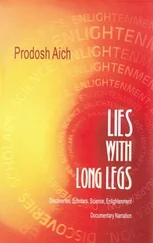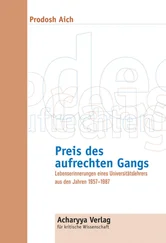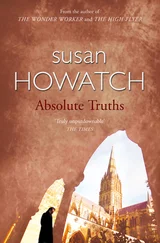Friedrich von Schlegelacquires his knowledge of the Sanskrit language in Paris as well, as it is handed down. We shall deal with him a little later. But there is one question we must raise here and now. Why did nobody at Aschaffenburg consider sending Franz Bopp, first to Friedrich von Schlegel? Where was he in 1812? What has been known about his knowledge of the Sanskrit language? Was Friedrich von Schlegel’s knowledge of Sanskrit not good enough? If it were so, how could he write the book Ueber die Sprache und Weisheit der Indier ? We shall have to check the quality of his knowledge of “Sanskrit” as well.
Our method of checking, as already stated, is straightforward and simple. We just find out, where, when, from whom and for how long a person has learnt “Sanskrit”, if he claims to have acquired the qualifications of teaching that language calledSanskrit to others.
First we return to Franz Bopp’s vita. Life then is as unpredictable as it is today for the “geniuses”, who are as prone to human follies as they are today. Whilst Franz Bopprealises that there would be no future for him in Aschaffenburg, he meets rather accidentally a restless Orient enthusiast, a young lady called Helmine de Chézy(1783–1856). About this meeting, she is quoted in the Brockhaus encyclopaedia in 1858:
“I found Aschaffenburg in 1812 (unlike 1811) very depressing. Karl von Dalberg was also away; after some time he returned. He was not cheerful. ...There was little intellectual stimulation in Aschaffenburg. Therefore, the acquaintance with Franz Bopp was very welcome to me. He was about to go to Paris in order to learn Persian and Sanskrit from Chézy. In the meantime I taught him to read Persian and many verbs and nouns. Chézy with his flaming heart received him like a father. He opened for him the gates of science and gave his pupil all of his interior treasures.”
In 1812 Franz Boppis just 21, Helmine de Chézy29 and Antoine Léonard de Chézy39. The Chézys are already divorced since 1810. Well! Helmineis actually Wilhelmine von Klenke. Her father a military officer and her mother a poetess. They were divorced early. Wilhelminegrows up ‘ under unregulated circumstances ’, whatever that might mean. In 1799 she marries Gustav Freiherr von Hastferat the age of sixteen and divorces after a year. The countess de Genlisinvites her in 1801 to Paris. From 1803 to 1807 she edits the journal “französische Miscellen” (French Miscellanea). In 1805 she marries at the age of twenty-two Antoine Léonard de Chézy, a known Orientalist in Paris. He will start teaching Persian in 1807 and later, in 1816, he will become the first Sanskrit professor at the Collège de France at the age of thirty-three, the very first Sanskrit professorship in Europe. We have taken a note of this.
In 1810 she gets separated from Antoine Léonard de Chézy, retains his name, stumbles from one relationship to another, works as a journalist and leads the life of a “liberated women” of that time. She recommends young Franz Boppto go to Paris, especially because her ex-husband, Antoine Léonard de Chézy, has mastered Sanskrit. But how did 115 Antoine Léonard de Chézylearn Sanskrit and from whom? We shall deal with him a little later as well.
*****
Whatever could have happened, but did not, also tells stories; stories about the limited horizon, about the intellectual attitudes of the protagonists of that time, about the patterns of communication, about communication channels and all that goes with it. We must however now stick to Franz Bopp’s facilities of learning the Sanskrit language in Paris of 1812.
The French occupants and missionaries also have plundered indiscriminately in India including manuscripts, books and artefacts without being able to understand their significance. Finally, these booties landed either in the royal library or in the royal museum in Paris. They were somehow sorted and catalogued without knowing what was done. There was none to identify them. There was none to be able to read and discriminate them. France has dragged out more cultural assets from Egypt than from India. A collection of manuscripts and of artefacts in a library generally becomes a watering ground for enthusiasts of all kind, especially if the curator is such a charming “contact-exchange” like Louis Mathieu Langlès(1765 - 1824).
There is an interesting obituary on him by A.J. Mahulin the Annuaire nécrologique, volume VI, 1821– 26. “As an officer’s son Louis Mathieu Langlès gets the job of his father in the Watch-house of the Tribunal of the Marshals of France in Péronne near Mont Didier, in the Picardie on August 23, 1765 after finishing school. Aspiring for a more advantageous career in the colonial service in India he wants to study oriental languages. He is permitted to attend lectures of Caussin de Perceval on Arabic and of Ruffin on Persian at the Collège de France. When he publishes a French translation of Political and military institutions of Tamerlan’ – from an English translation by major Davy – at the age of 22, Marshal de Richelieu, the then dean of the Tribunal of the Marshals of France, sponsors him. He is glad to ensure that the 25 years old “young scholar” of him got one of the twelve scholarships.”
Louis Mathieu Langlèsis enthusiastic all right. He does not hesitate to claim to have reconstructed the alphabets of the Tartaric language and cast them in letters for printing. When he publishes them he is accused of plagiarism, because Michel-Ange-André Le Roux’s “Deshauterayes”had already published the same 20 years earlier in the Encyclopédie. Well, Louis Mathieu Langlèscould have also got away with it! Isn’t it? Unfortunately for him that someone did have a memory of 20 years.
Louis Mathieu Langlèstries the same exercise with other languages of the orient too. He loves these languages, celebrates them on all occasions, inserts words or characters into his books to draw attention of his readers by the bizarre appearance of those exotic forms, and publishes oriental texts. He contributes to popularise Arabic, Turkish and Persian in France. No one ever wanted to know when, where and from whom he could have learnt those languages.
He submits several memorandums to the National Assembly between 1790 and 1794, ultimately resulting in the setting up of the École des langues orientales vivantes (School for contemporary oriental languages) at the national library in Paris. He is appointed the president and professor for Persian and Malaysian at the age of twenty-nine. But he does not teach these languages there. Why does he not teach these languages there or at all? The reason is not difficult to comprehend. He just does not know them.
In 1792 Louis Mathieu Langlèsbecomes none the less the curator of the oriental manuscripts at the national library at Paris. Nothing “oriental” is then on in France without him. He publishes a lot. These are translationsfrom English into French. A genuine “Oriental Langlès”. Among the orators at his burial in 1824 is also a representative of the “Asiatick Society” in Kolkata, founded by “Oriental Jones”, i.e. by Sir William Jones.
At the École of the langues orientales vivantes Baron Antoine Issac Silvestre de Sacy(1758–1838) is appointed as the firstteacher for “Contemporary Oriental Languages”. This is rather a highflying term because in 1795 only Arabic is taught there. From 1806 on Antoine Issac Silvestre de Sacyteaches also Persian. As far as “Oriental Matters” are concerned, nothing else is available there when Franz Bopparrives in Paris.
Читать дальше
